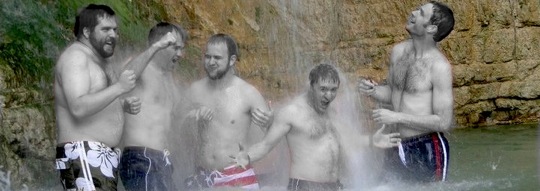Context: Transubstantiation is a Catholic and Orthodox doctrine that attempts to define the extent to which the “real presence” of Christ is present in the Lord’s Supper(Eucharist).
The term “transubstantiation” doesn’t occur until the 11th century it was used Hildebert de Lavardin to describe the physical change of the bread and wine into the actual body and blood of Christ. In 1215 at the fourth council of Lateran the term was fully adopted into the language of the church when they stated: “the bread and wine is “transubstantiated”, by God’s power, into his body and blood.”
Even though the term wasn't used the idea of the bread and wine being Christ's literal body and blood started gaining popularity in the 9th century when Pascasius Radbert, a monk, and afterward abbot of Corbey in Picardy, published a treatise concerning the sacrament of the body and blood of Christ. (see quote below) "In 1551, the Council of Trent met in response to protestant heresies and further defined transubstantiation.(see below)
Some Catholic apologists will state that the idea of the Lord’s Supper being made up of the literal body and blood of Christ came from the early church fathers such as, Justin Martyr, Ignatius, and Tertullian. However most of the quotes they use can be argued were more about defending the human body of Jesus against Gnosticism than a belief that the Eucharist actually becomes Jesus’ body and blood.
Impact: This idea is an essential Catholic doctrine and is seen as a “mysterious triad” along with the Trinity and the Incarnation that transcends reason and rational explanation.
Taking a literal interpretation of John 6:55-56: For my flesh is real food and my blood is real drink. Whoever eats my flesh and drinks my blood remains in me, and I in them. If the elements are not a representation of Christ but his true body and blood the sacrament of the Lord’s Supper is not seen as a remembrance of Christ, but a union with Christ and a need of receiving the Eucharist weekly if not daily is essential for believers.
Quote: “That after the consecration of the bread and wine in the Lord's Supper, nothing remained of these symbols but the outward form or figure, under which the body and blood of Christ were really and locally present; and that this body so present was the identical body that had been born of the Virgin Mary, had suffered on the cross, and had been raised from the dead." --Pascasius Radbert
"that wonderful and singular conversion of the whole substance of the bread into the Body, and of the whole substance of the wine into the Blood – the species only of the bread and wine remaining – which conversion indeed the Catholic Church most aptly calls Transubstantiation"--council of Trent
Evaluation: I have always appreciated the Catholic churches emphasis not on entertaining music, skits, or sermons but on the sacrifice of Christ on the cross. However I think the church takes too literal of an interpretation of verses such as Matt. 26:28, and John 6:53-58.
There are several logical and theological missteps transubstantiation makes as well. Namely the Lord’s supper occurred before Christ’s crucifixion so it must have been figurative then.
Opponents: Protestants. In the reformation transubstantiation was seen as a highly controversial doctrine. Martin Luther in his writing “On the Babylonian Captivity of the Church” wrote: Therefore it is an absurd and unheard-of juggling with words, to understand "bread" to mean "the form, or accidents of bread," and "wine" to mean "the form, or accidents of wine." Why do they not also understand all other things to mean their forms, or accidents? Even if this might be done with all other things, it would yet not be right thus to emasculate the words of God and arbitrarily to empty them of their meaning.
The meaning and presence of Christ in the Lord’s supper differs throughout denominations. Lutherans believe in the sacramental union, Reformed churches spiritual presence, and many others as purely symbolic.
Resources:
“Transubstantiation.” Wikipedia: The Free Encyclopedia. Wikimedia Foundation Inc. 31 March, 2014.
“Real Prescence.” Wikipedia: The Free Encyclopedia. Wikimedia Foundation Inc. 31 March, 2014.
Watson, Richard. Entry for 'Transubstantiation'. Noah Watson's Biblical & Theological Dictionary. http://www.studylight.org/dic/wtd/view.cgi?n=1548. 1831-2.
Obstat, Nihil. Lafort, Remy, Censor. Entry for 'Eucharist'. The Catholic Encyclopedia. http://www.studylight.org/enc/tce/view.cgi?n=4208. Robert Appleton Company. New York. 1914.
Slick, Matt. “Transubstantiation and the Real Presence.” Christian Apologetics and Research Institute, carm.org. 2014.
yeah- that's right...I said it - TRANSUBSTANTIATION

















